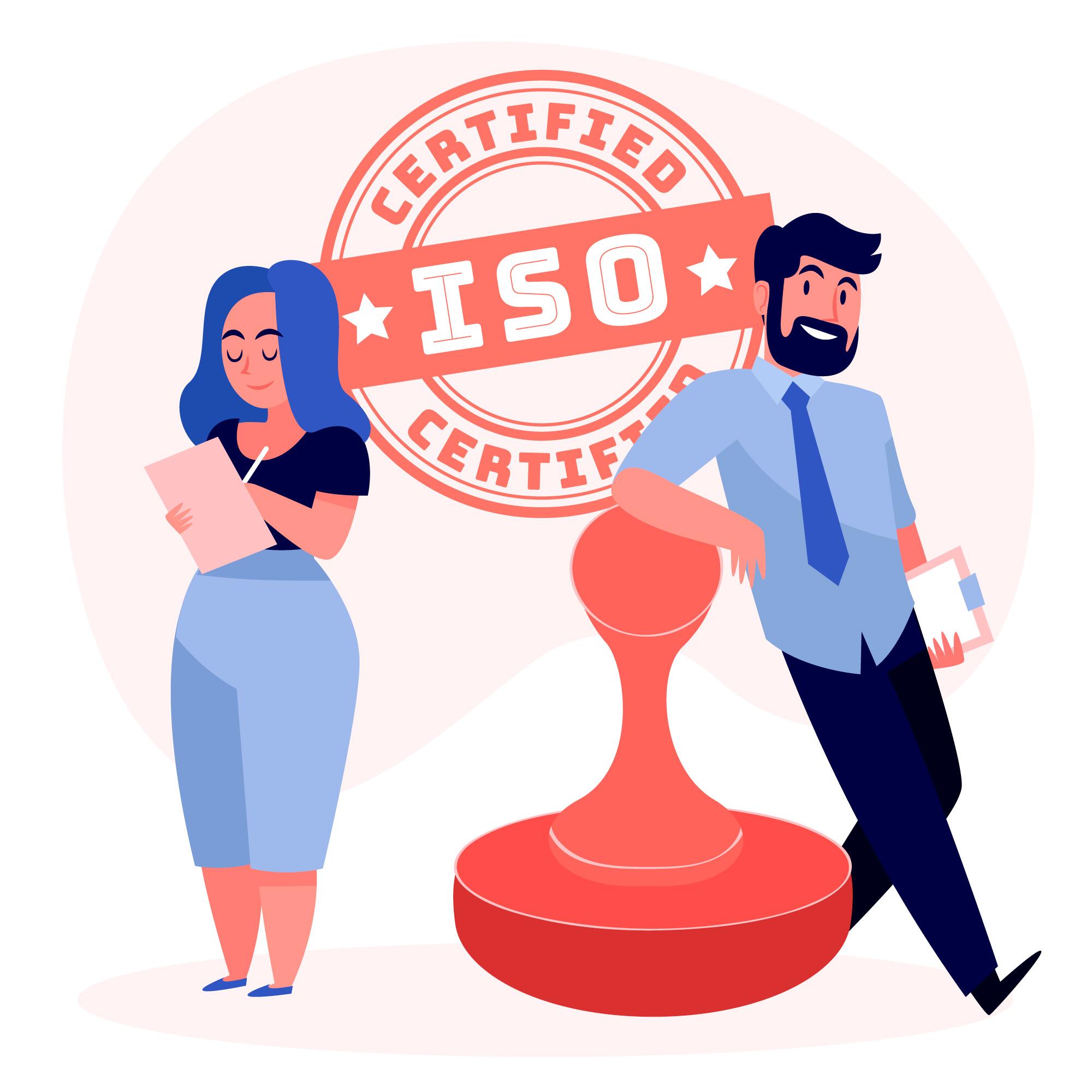
ISO Registration involves certifying a business with standards set by the International Organization for Standardization (ISO), ensuring the quality, safety, and efficiency of products, services, and systems. ISO certification boosts customer trust, enhances market credibility, and demonstrates a commitment to excellence. It is applicable across various industries, making businesses globally competitive and compliant.
What is ISO Certification?
ISO certification confirms that a business meets specific international standards for its operations, products, or services. These standards are designed to ensure consistency, efficiency, and customer satisfaction while fostering continuous improvement. Common ISO standards include:
- ISO 9001: Quality Management System.
- ISO 14001: Environmental Management System.
- ISO 27001: Information Security Management System.
- ISO 45001: Occupational Health and Safety.
- ISO 22000: Food Safety Management.
Benefits of ISO Certification
- Global Recognition: ISO-certified businesses are trusted worldwide, opening doors to international markets.
- Improved Quality: Enhances product/service quality and consistency.
- Customer Satisfaction: Demonstrates a focus on meeting customer needs and expectations.
- Regulatory Compliance: Ensures adherence to industry standards and legal requirements.
- Operational Efficiency: Streamlines processes, reducing waste and costs.
- Competitive Advantage: Distinguishes your business in a crowded marketplace.
- Employee Morale: Encourages a culture of continuous improvement and accountability.
Industries Benefiting from ISO Certification
ISO certification is relevant for businesses across sectors, including:
- Manufacturing and production.
- Information technology and software development.
- Healthcare and pharmaceuticals.
- Food and beverage.
- Construction and infrastructure.
- Education and training.
- Financial services.
ISO Certification Process
- Identify the ISO Standard
- Select the appropriate ISO standard based on your industry and business goals.
- Gap Analysis
- Analyze your current processes to identify gaps in compliance with the selected standard.
- Documentation and Training
- Prepare necessary documentation, train employees, and implement the required processes.
- Internal Audit
- Conduct an internal audit to ensure readiness for certification.
- Engage a Certification Body
- Choose an accredited certification body to perform the audit and issue the certificate.
- Certification Audit
- Undergo a two-stage audit process, including a preliminary and final assessment.
- Receive ISO Certificate
- Upon successful completion, receive the ISO certificate, valid for a specified duration (usually three years).
Documents Required for ISO Certification
- Business registration proof (GST, MSME, or incorporation certificate).
- PAN card of the business.
- Address proof of the organization.
- Scope of work and business activities.
- Existing policy and process documents (if applicable).
Why Choose Soshniti for ISO Registration?
Soshniti simplifies the ISO certification process, ensuring hassle-free compliance with international standards. Our services include:
- Assessing the most suitable ISO standard for your business.
- Preparing documentation and process manuals.
- Providing employee training for implementation.
- Coordinating with certification bodies for a seamless audit process.
- Offering post-certification support and advisory services.
Frequently Asked Questions
1. Is ISO certification mandatory for businesses?
ISO certification is not mandatory but is highly beneficial for improving quality and gaining customer trust.
2. How long does it take to get ISO certification?
The process usually takes 2–6 months, depending on the size and complexity of the business.
3. Can ISO certification help in securing government contracts?
Yes, ISO certification is often a prerequisite for government tenders and contracts.
4. What is the cost of ISO certification?
The cost varies based on the standard, business size, and the certification body selected.
5. Is ISO certification renewable?
Yes, ISO certification must be renewed periodically, typically every three years, through a reassessment process.
